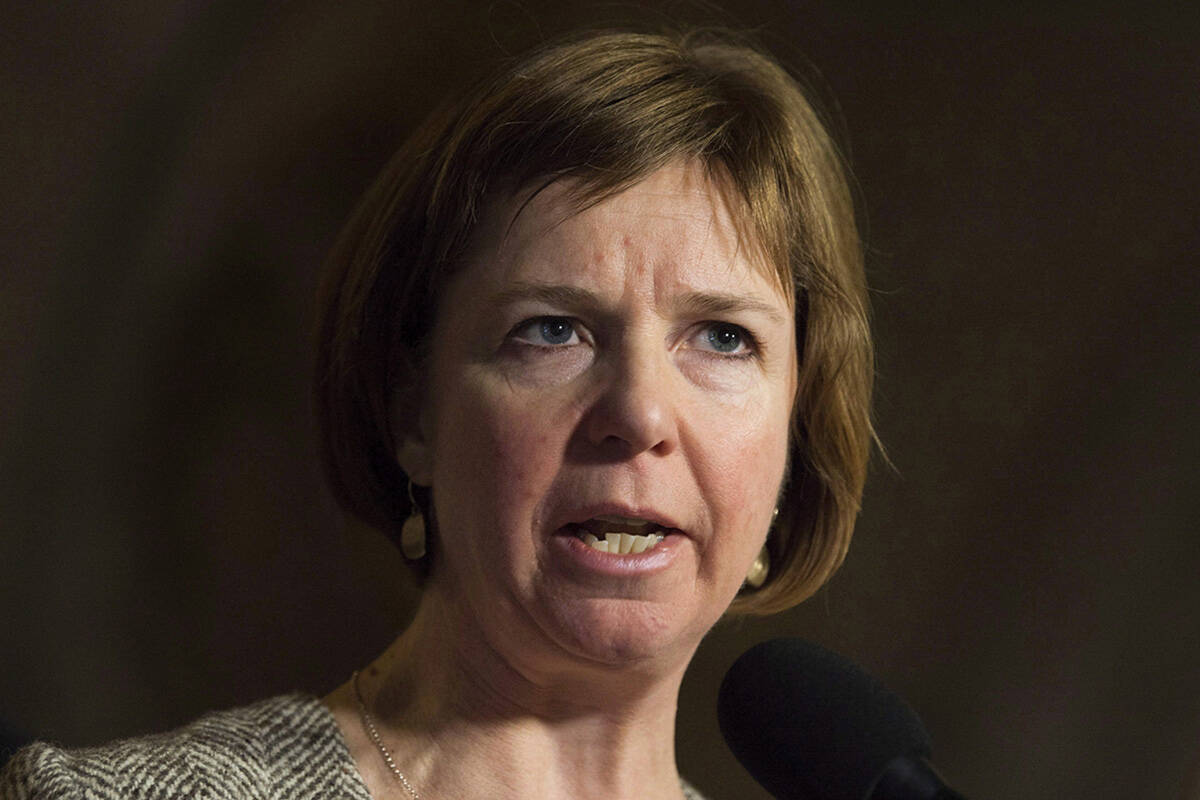It’s been a difficult year for British Columbians – the challenges we are facing are unprecedented. I’m reminded every day of our collective resilience, even in the face of grief, worry and loss. My heart goes out to everyone who lost a loved one during these trying times.
As our province recovers from multiple extreme weather events, our health care system continues to fight two public health emergencies: the COVID-19 pandemic and the toxic drug crisis.
As the Minister of Mental Health and Addictions, my full attention is directed to responding to the rising tide of need in B.C. While there is no silver bullet to address this public health emergency, our government is taking urgent action to save lives.
We inherited a broken system that had been long neglected, and over the past four years we have made historic investments to patch the holes in this fragmented system. But now we are now moving beyond filling gaps, to make true system-level change.
Our government invested a historic $500 million in Budget 2021 to build a comprehensive system of mental health and addictions care that people in British Columbia deserve.
Of that, $132 million has been invested to build B.C.’s system of treatment and recovery care, withdrawal management, transition services, specialized treatment and longer-term aftercare supports. We will open 195 new beds as part of this funding – 10 of which I recently announced in Surrey to support those battling addiction, and additional beds will be added over the next three years. This builds on over 100 treatment and recovery beds that were opened across the province this year alone, significant expansion of free and low-cost mental health and addictions counselling. We continue to invest in services for children and youth through the expansion of Integrated Child and Youth Teams and Foundry centres across the Province, to prevent small problems from becoming big ones.
We are also transforming B.C.’s substance use and addiction care to support people at every step. B.C. is the first province to offer a safer supply program, with a 473 per cent increase in the number of people – 677 to 3,899 people – helped since we introduced the first phase of prescribed safer supply in March 2020. In July 2021, we expanded safe supply to separate even more people from the poisoned illicit drug supply and connect them to ongoing health care and support.
And while we are making significant investments and offering life-saving services to those suffering from substance use, our government has taken the critical step forward to assert that addictions is a public health challenge, and not a criminal justice issue.
That is why we asked Health Canada to remove criminal penalties for people who possess small amounts of illicit drugs for personal use. Decriminalizing people who use drugs will reduce the fear and shame that keeps people silent and leads so many to hide their drug use and avoid treatment and support.
Decriminalization is not legalization. Drug trafficking, gang activity and other drug-related offences will remain illegal, which will allow police to focus on the source of drug crimes.
We built our application on evidence from medical professionals, advocacy groups, and people with lived and living experience. I met with Carolyn Bennett, the newly appointed federal Minister of Mental Health and Addictions, last week to discuss the urgent need for decriminalization.
With more than five British Columbians dying each day of toxic illicit drugs, we expect the federal government to make our application a priority.
Our government will keep expanding how those experiencing addiction receive care. We will keep building upon emergency response and treatment services as promised in our roadmap report, A Pathway to Hope, to make lasting changes to B.C.’s mental health and addiction care. There is more to do, and there is reason for hope as we continue to innovate and build the mental health and addictions care British Columbians deserve.
– Sheila Malcolmson is B.C.’s Minister of Mental Health and Addictions

